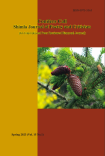Theorising Selfhood: A Reading of Shashi Deshpande’s
This paper has two parts. The first part seeks to briefly theorise the notion of selfhood in the light of theories propounded by Jung, Maslow, Kohut and others alongside working out its poststructuralist and postmodern implication. The second part of the paper will deal with analysis of Shashi Deshpande’s novel In the Country of Deceit (2008) in the light of the theorisation done in the first part. Interestingly, this novel is markedly different from Deshpande’s previous novels and portrays Devayani who is unmarried and enters into the country of deceit via having an affair with Ashok Chinappa who is married and eventually moving out of it of her own volition.
The modernist perception of self as an autonomous construct (which is in consonance with its humanist understanding) has been subjected to rigorous scrutiny by poststructuralists and postmodernists. Rather than attributing essentialist qualities such as coherence, unity, rationality and consistence to the notion of self (as is wont with humanists and modernists), theorists like Foucault underscored its interaction with political institutions, culture and society at large thereby viewing it as discourse. Derrida also challenged and deconstructed the essentialist/ absolutist ring attached to the conceptual construct called self and argued that language of all kinds may be viewed in terms of binaries that have political, historical as well as socio-cultural ramifications. Derridean and Foucauldian intervention resulted in decentring of the self as absolute construct and imparted it a fluid character.
Dr. Roshan Lal Sharma

